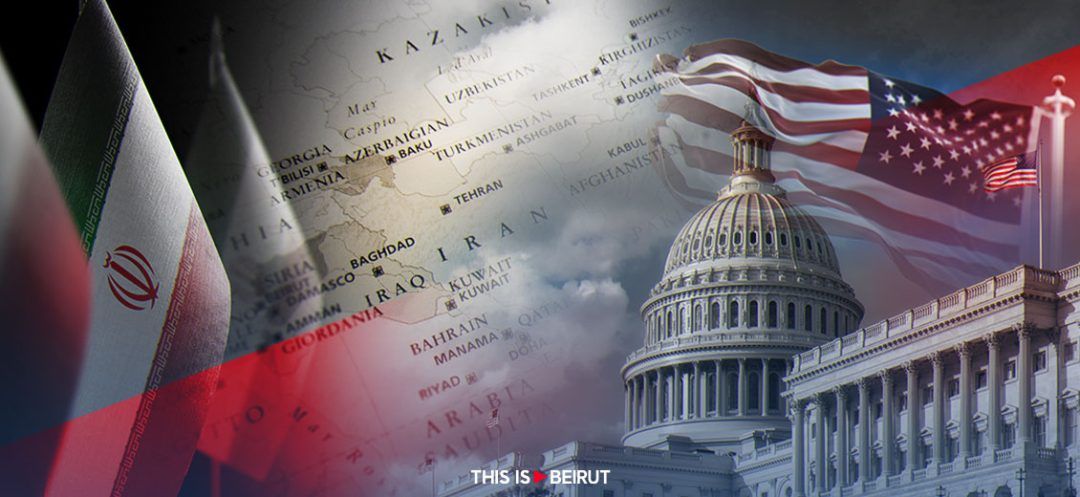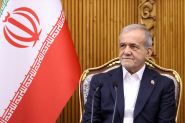- Home
- Middle East
- Is Washington's Brain Fog Lifting?

Small powers can rarely indulge in national security self-delusion. The potentially existential cost of such luxury is simply too high. It is a different matter for great powers, which can carry on in willful contradiction of national interests, obvious threats, and plain facts for some time before reality intrudes. Since October 7, 2023, Washington's foreign policy establishment has had a hard time accepting the obvious reality that Iran is the principal protagonist in the current state of affairs in the Middle East. On April 13-14, 2024, as America joined with Israel in foiling a barrage of Iranian missiles and drones, Washington's six-month brain fog showed signs of clearing. With this successful defense, America and Israel took meaningful steps toward restoring their deterrence posture against their adversaries, Iran, and its proxies, although the absence of effective deterrence brought us to this point. The joint operation by Israel and the U.S. has demonstrated to skeptics the value of the U.S. security umbrella and America's commitment to enforce it.
This cycle of violence exposed the central role of Iran in the ongoing, interconnected regional conflict and the menace it poses not just to Israel, but to Arab moderate states that seek peace and stability. Iran's claim at the UN that its aggression is an act of self-defense in response to an attack on its diplomatic facility in Damascus is characteristically hypocritical. This same Iranian regime was complicit in 1979-81 in the 444-day occupation of the American Embassy in Tehran and the kidnapping of its diplomats there, the bombing of not one but two American Embassies in Beirut in the 1980s, and a long list of transgressions against the sovereignty of other states. They should give us all a break before invoking the Vienna Conventions and UN Charter.
But if left in isolation, this episode resolves nothing. Iranian leaders are backing down from this round not because they want the conflict to end, but because they want it to continue -- at the level of proxies, where Iran has some comparative advantages and the cost to it is cheaper. This is why if we are ever going to succeed in bringing war by proxies in the Middle East to an end, we should build on today's success so that Iranian leaders continue to feel the costs of their limited, but endless proxy war strategy. It may be time to pause escalation in this specific episode absent further Iranian escalation, whether it is direct or indirect. But Tehran should know that any such escalation for starters will entail retaliation against valuable IRGC facilities and personnel throughout the Arab world.
If Washington's brain fog about Iran's role is truly lifting, then it is an opportunity to build a bipartisan consensus that will enable the United States to follow through with persistent and comprehensive pressure on Iran by an expanding alliance of like-minded states. Meaningful measures should include:
--the enforcement of existing sanctions, especially on Iranian energy exports;
--the interdiction of Iranian military supplies to its proxies and Russia;
--the persuasion of certain Arab states to end hedging strategies toward Iran that arose from a loss of confidence in America's security umbrella; and,
--the G7 condemnation of Iran's aggression and endorsement of strategies to pressure Iran.
Of course, there are local and homegrown problems between Israel and the Palestinians. The solutions to them have evaded all of us, despite years of well-meaning initiatives based since the 1990s on a two-state formula. Iran has skillfully exploited this conflict, alongside other ones. As we explore how best to undertake the long road back to restoring the confidence needed for regional peacemaking, America should make clear that success hinges on constraining Iran's ability to play the spoiler role by abetting extremists and fueling violence. Isolating Iran will be a critical first step to any successful strategy to address the needs and aspirations of Israel and the Palestinians, as well as those of Lebanese and Israelis.
Above all, we must be persistent. Once the violence subsides and the sense of crisis eases, the temptation in Washington and elsewhere will be to move on and not address underlying causes. This pattern has enabled America's adversaries to gain strength during periods of American neglect. Our policies should be realistic, coherent, and rational. Policies that focus only on local problems and proxies, while ignoring Iran's central role, will guarantee a never-ending tumult in the Middle East. We will never regain regional stability if costs are felt only by Iran's disposable proxies, and not by Iran itself. That is the primary lesson of this latest round. Turning the tables on Iran requires a persistent, multi-faceted approach, just as sophisticated and durable as Iran's approach. All means of pressure -- from diplomacy to sanctions to military action -- should be put in play. This effort will not be easy for America in an election year. But without such determination, we and our allies will remain on the defensive, and innocent people in the region the victims of weak policies that invite aggression. Strength and deterrence, not weakness and acquiescence, are the ingredients for peace.
Read more




Comments